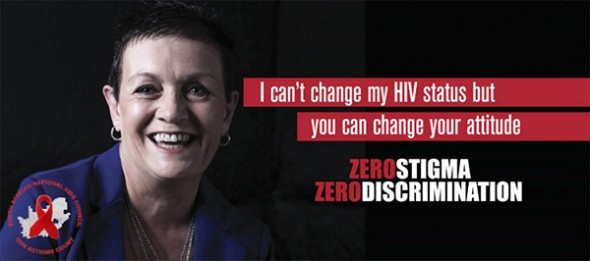
World Aids Day 2014 kicks off SA’s Zero stigma, zero discrimination
On yesterday’s World Aids Day 2014, the South African National Aids Council (Sanac) called on all the people of the country to join its campaign for the next 12 months: Zero Stigma, Zero Discrimination. World Aids Day, commemorated on 1 December every year, gives all communities the opportunity to unite in the fight against HIV, […]

On yesterday’s World Aids Day 2014, the South African National Aids Council (Sanac) called on all the people of the country to join its campaign for the next 12 months: Zero Stigma, Zero Discrimination.
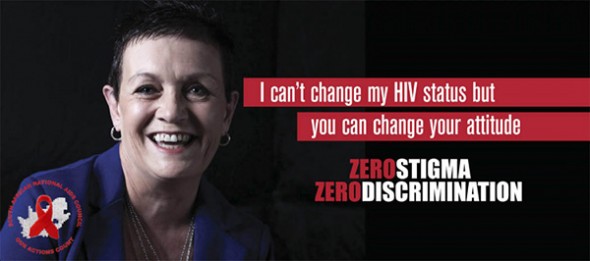
World Aids Day, commemorated on 1 December every year, gives all communities the opportunity to unite in the fight against HIV, show support for people living with HIV and remember those who have died.
- Download Sanac’s World Aids Day 2014 toolkit
The UNAids Words Aids Day theme for the period 2011 until 2015 is “Getting to Zero”. This year South Africa will focus on zero discrimination, while not losing sight of the other zeros: zero new HIV infections, and zero Aids-related deaths.
The aim of this campaign is to ensure that the rights of people living with HIV and Aids are not violated, and that discrimination on the basis of HIV, Aids and TB is not only reduced, but eliminated.
South Africa has worked hard to turn its many Aids, and TB epidemics around, and has achieved many successes. Sanac’s review of efforts to combat HIV and Aids over the past 20 years paints a mixed picture:
- There have been many scientific advances in HIV treatment.
- We have a much better understanding of the virus.
- More people are receiving antiretroviral treatment, which means HIV infection rates are dropping.
- There is a scientific optimism about the benefit of treatment as prevention, and progress towards a cure and vaccine.
But despite these advances, stigma and discrimination remains a reality for many people living with, or affected by HIV. World Aids Day 2014 gives all South Africans the opportunity to remind themselves that HIV is still a reality and that it is the duty of all of us to continue fighting prejudice, stigma and discrimination.
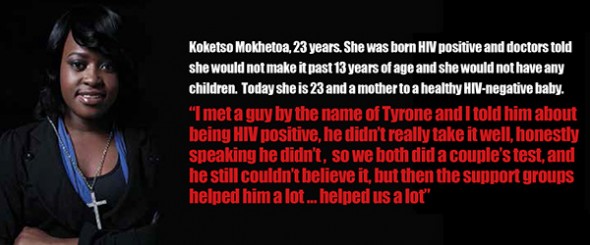
Why stigma and discrimination matter
Stigma and discrimination can be as devastating as the illness itself: abandonment by a partner or family, social exclusion, job and property loss, school expulsion, denial of medical services, lack of care and support, and violence. These consequences, or fear of them, mean people are less likely to test for HIV, disclose their HIV status to others, adopt HIV preventive behaviour, and access treatment, care and support.
Every sexually active South African is at risk of contracting HIV. HIV and Aids are chronic diseases, which means that that people living with HIV can have full and happy lives.
“We each have a responsibility to treat those who are struggling with an HIV+ positive diagnosis with compassion, those struggling with Aids with care, and ourselves and our sexual partners with respect,” Sanac said in a statement.
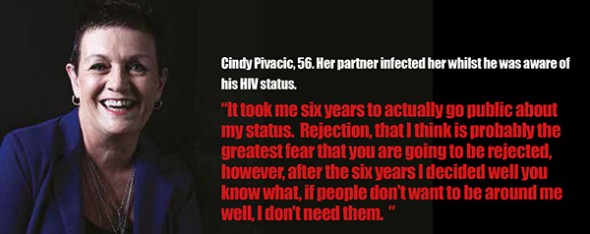
Ending the fear of stigma
Preventing stigma and discrimination is important in mitigating the impact of HIV.
Fear of stigma stops people knowing their status.People are afraid to go to a clinic or HIV testing service because they don’t want their neighbours to gossip about them. People will not tell their partners they are HIV-positive because they are afraid they will be abandoned. If all South Africans know and share their status and disclose without fear of judgment or rejection, the country will conquer the disease.
Fear of stigma puts people with HIV at risk.It is not easy to receive an HIV-positive diagnosis, even though treatment is available. There is no cure. People have to learn to live with a chronic disease and manage the side-effects of the drugs. It is a heavy burden for anyone to carry on their own. Many people have suicidal thoughts or even attempt suicide because of the stigma they suffer or fear.
Fear of stigma stops people accessing treatment.Fear of being seen at a clinic, of a family member finding the drugs, or of a loved one finding out the truth stops people from accessing the treatment that is not only their right, but will also lower the levels of HIV in their bodies. People who do get treatment can live long and full lives, and have HIV-negative babies and HIV-negative partners. Stigma may also compel people to hide their medicines, which could result in them taking inconsistent doses.
Stigma and discrimination disproportionately affect women and girls. Women tend to experience greater stigma and discrimination than men, are more likely to experience it in its harshest and most damaging form, and have fewer resources to cope with it. Violence is a severe consequence of stigma, faced mainly by women. Women and girls report increased violence at the hands of their partners when they insist on condoms, when going for voluntary testing and counselling, when they refuse sex within or outside a relationship, and when they test HIV-positive.
Stigma has magnified effects among socially vulnerable groups. Stigma and discrimination are daily realities for people living with HIV and for people belonging to groups particularly vulnerable to HIV infection. Such groups include sex workers, men who have sex with men, people who inject drugs, prisoners and people with tuberculosis.
Members of these groups are already stigmatised and are likely to face more discrimination than others when diagnosed with HIV, including being refused services. They often avoid or delay seeking needed services for fear of being found out, humiliated, and treated differently by health workers.
According to Sanac, South Africans must take part in a sustained conversation about stigma and discrimination over the next year, starting yesterday, World Aids Day 2014. Two major programmes have been launched to not only reduce, but ultimately eliminate stigma and discrimination.
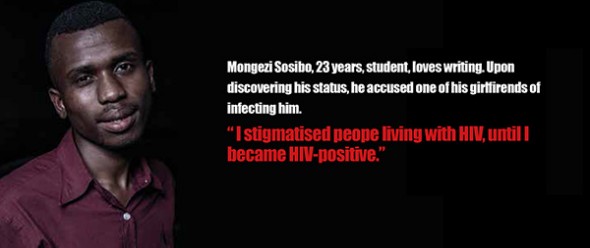
The South African Stigma Index
In partnership with a number of organisations and institutions, Sanac is undertaking the first National Stigma Index Survey among people living with HIV in 18 districts across South Africa – two districts per province. The study will interview over 10 000 HIV-positive people older than 15 years.
Sanac’s partners in the survey include the National Association for People Living with Aids, the Treatment Action Campaign, Positive Living Women’s Network, Human Sciences Research Council, Wits Reproductive Health and HIV Institute, Deutsche Gesellschaftfür Internationale Zusammenarbeit, the Joint United Nations Programme on HIV/Aids and the Department of Health.
The Stigma Index will measure self-reported stigma and discrimination experienced by people living with HIV and will ultimately inform the development and implementation of national policies and programmes that protect their rights. An update on the survey is to be released on World Aids Day 2014. The final report is expected to be released by April 2015.
Stigma-reduction programme
A provincial Stigma Index Survey undertaken between October 2011 and August 2012 in the Eastern Cape involved a sample of 799 people living with HIV from three local municipalities in the OR Tambo district: King Sabatha Dalindyebo, Nyandeni and Ngquza.
To respond effectively to the Eastern Cape survey, Sanac, the Eastern Cape Provincial Council on Aids and other organisations will develop a coordinated stigma and discrimination strategy in the province. This will inform the development of a model for the work of partners at provincial level as well as at national level once the national Stigma Index Survey has been completed.
“No policy or law can alone combat HIV and Aids related discrimination,” Sanac says. “All South Africans have to confront the fear-based messages and biased social attitudes, in order to reduce the discrimination and stigma of people living with HIV and Aids.”
For more information and resources, visit the South African National Aids Council website.
By: Staff Reporter
Source: www.mediaclubsouthafrica.com
